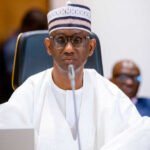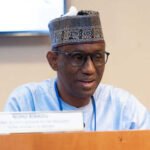Several reactions to the move by the Central Bank of Nigeria (CBN) to relocate some of its offices to Lagos State again confirm the worrisome level of citizens’ distrust in governance.
Development Diaries reports that the Federal Airports Authority of Nigeria (FAAN) also plans to relocate its headquarters to the country’s former capital even as the Minister of Information and National Orientation, Mohammed Idris, in a recent press statement, insisted that the relocation moves are not political and that the allegations are unfounded.
‘Even as we tackle our challenges with urgency and dedication, it is also necessary to remind all Nigerians of the need to resist all forces and narratives of misinformation and division’, the statement read.
‘For example, it is not true that the relocation to Lagos of the headquarters of the Federal Airports Authority of Nigeria (FAAN), and certain departments of the Central Bank of Nigeria (CBN), are political moves aimed at marginalising a section of the country.
‘These allegations are unfounded. Instead, these are pragmatic administrative steps to improve operational efficiency and reduce operating costs’.
Why would there be false narratives and misinformation if the government had done well to earn the trust of the people?
What Nigerians are used to, which is unfortunate, is frequent flouting of policies and laws by public officials and institutions of government. A recent example would be when President Bola Tinubu defied his directive to reduce the number of his travelling officials.
If the president of Nigeria could disregard his directive, how are citizens supposed to accept or believe whatever comes from the government?
Situations like this continue to widen the trust gap and create a loss of trust and confidence in the leadership, going further to undermine the effectiveness of governance and the implementation of policies.
As citizens’ trust in government continues to diminish, it will take more than just a pronouncement or a press statement by the government to make them have a positive mindset about any policy.
A survey conducted by Edelman Intelligence, in its 20th Edelman Trust Barometer Survey report, revealed that the government remains the least trusted, with Nigerians having no confidence in the ability of leaders to address the country’s challenges.
As a result, citizens become less interested in participating in governance, and with this, Nigeria’s drive to attain sustainable development will continue to be slippery.
Building trust requires sustained efforts to promote transparency and accountability and implement policies that genuinely prioritise the well-being of the population, fostering a sense of unity and shared progress.
The various conversations surrounding the CBN-FAAN development are a pointer to the fact that the government needs to be more accountable and transparent in its dealings.
This development is an opportunity for the government to look inward and retrace its steps towards rebuilding the people’s trust
The first step towards earning citizen’s trust in government is to enhance transparency in government operations, financial transactions, and decision-making processes.
Another measure is to improve communication channels between the government and the public to keep citizens informed about policies, initiatives, and developments.
It is also important for the government to engage in responsive governance by incorporating citizen feedback into policy-making processes.
The government at all levels must also strive to implement policies that address poverty and promote sustainable economic development in the country.
Development Diaries calls on President Tinubu and other public officials to demonstrate a genuine commitment to promoting transparency and accountability in all their activities and ensure that they continuously engage with the public to build and maintain trust.
Photo source: State House








